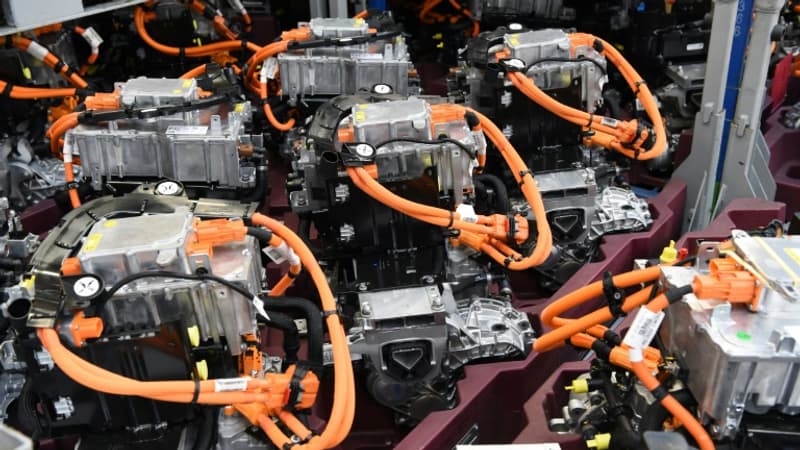Stellantis announced on Friday that it would acquire a stake in French sodium-ion battery maker Tiamat to diversify its range of technologies for its electric vehicles.
The amount of the automaker’s investment has not been made public, but it is part of Tiamat’s initial €150 million fundraising, the start-up’s CEO Hervé Beuffe said during a press conference.
These funds should be used, in particular, for the construction of a battery factory in northern France. This site, the region’s fifth gigafactory, should have an initial capacity of 0.7 GWh in 2026, which could be expanded to 5 GWh in 2029, he added.
“The entry of Stellantis into the company’s share capital allows us to carry out this industrialization in France and, secondly, to support the evolution of technology for other needs in the medium and long term,” continued Hervé Beuffe.
Replacing lead-acid batteries.
Tiamat, a spin-off company from the French public scientific research institute CNRS, founded in 2017, aims to be the world’s first commercialization of a consumer device (a screwdriver) equipped with a sodium-ion battery.
This technology makes it possible to eliminate lithium, a metal in high demand today due to the electrification boom, replacing it with much more abundant sodium, and offer cheaper batteries for small vehicles. The disadvantage (reduced autonomy) can be compensated by faster charging capacity.
Before demonstrating its effectiveness in 100% electric cars, Tiamat’s technology will find its first applications in portable power tools, in stationary electricity storage and hybridization, or even in the replacement of traditional lead batteries used for starting thermal vehicles.
“Exploring new options for more sustainable and affordable batteries, using widely available raw materials, is a key element of the ambitions of our ‘Dare Forward 2030’ strategic plan, which calls for us to achieve net carbon neutrality “by 2038,” said Ned. Curic, director of Engineering and Technology at Stellantis, quoted in a press release.
Source: BFM TV


